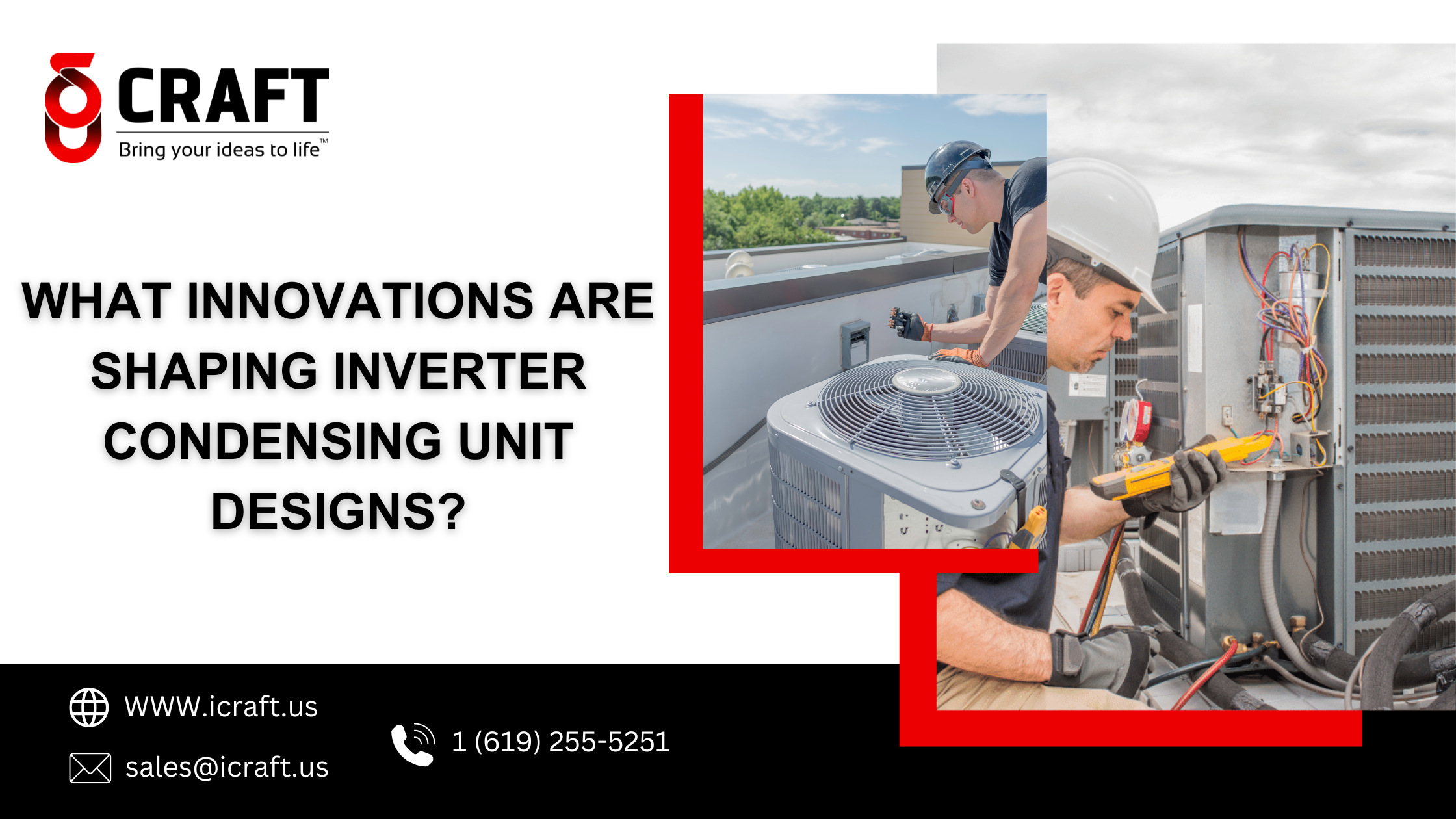What Innovations Are Shaping Inverter Condensing Unit Designs?

Strong 8k brings an ultra-HD IPTV experience to your living room and your pocket.
The world of cooling technology is evolving rapidly, and inverter condensing units are at the forefront of this transformation. For professionals in the industry, staying updated on the latest advancements is not just a competitive advantage but a necessity. These units are designed not just to keep things cold but to achieve this goal efficiently, reliably, and with minimal energy waste. Curious about the innovations driving these changes? Let’s dive deeper into the game-changing technologies shaping the future of inverter condensing units.
Smarter Controls, Better Performance
Gone are the days of one-size-fits-all cooling solutions. Modern inverter condensing units are equipped with advanced control mechanisms that dynamically adjust the cooling output based on demand. This adaptability not only reduces energy consumption but also prolongs the lifespan of components.
At the heart of these innovations are intelligent sensors. These sensors monitor real-time conditions such as temperature, humidity, and system load. With this data, the system makes split-second adjustments to maintain precise cooling levels. Think of it as giving your cooling system a "brain" that works around the clock to optimize performance and lower costs.
Moreover, remote monitoring capabilities are becoming standard in these units. Using IoT (Internet of Things) technology, facility managers can track performance metrics, receive maintenance alerts, and adjust settings from anywhere. This innovation is particularly beneficial for large-scale commercial operations where downtime is costly and continuous monitoring is essential.
Efficiency Through Variable Speed
One of the most groundbreaking advancements in inverter condensing unit design is variable-speed technology. Traditional systems operated in an on-off manner, either running at full capacity or shutting down entirely. This approach often led to energy waste, wear and tear, and inconsistent temperature control.
Inverter technology, however, allows the compressor to operate at variable speeds based on cooling demand. For example, during periods of low demand, the system can run at reduced capacity, conserving energy and minimizing operational strain. This results in smoother performance, longer equipment life, and significant cost savings.
In large-scale commercial condensing units, these innovatiities such as supermarkets, cold storage units, and industrial plants benefit greatly from variable-speed systems, which can adapt to fluctuating loads while maintaining consistent cooling.
Compact Designs for Tight Spaces
As urban areas become denser, space-saving solutions are more critical than ever. This demand has led to the rise of compact and indoor inverter condensing units, which are designed to deliver powerful cooling in a smaller footprint.
These compact units are ideal for applications where outdoor installations are not feasible, such as high-rise buildings or urban commercial spaces with strict zoning regulations. Despite their reduced size, these systems pack the same cooling punch as larger units, thanks to advancements in heat exchanger technology and component miniaturization.
The flexibility of compact designs also makes them suitable for retrofitting older systems or integrating with existing infrastructure. This adaptability ensures that businesses can enjoy modern cooling solutions without significant structural modifications.
Eco-Friendly Cooling Systems: Water-Cooled Condensing Units
Sustainability is no longer optional; it is a key consideration in modern cooling technology. Water-cooled condensing units exemplify this trend, offering a more energy-efficient and environmentally friendly alternative to traditional air-cooled systems.
These systems use water to dissipate heat, which is far more efficient than air. This design not only reduces energy consumption but also operates more quietly, making it ideal for environments where noise control is essential, such as hospitals, offices, and educational facilities.
In addition to their energy efficiency, water-cooled units often have a smaller carbon footprint. By consuming less energy and utilizing water as a heat-transfer medium, they contribute to reduced greenhouse gas emissions. These units are perfect for organizations looking to align with sustainability goals while maintaining high-performance cooling.
Quiet Operation, Happier Users
Noise pollution is a significant concern, especially in indoor environments such as restaurants, server rooms, or office spaces. Older cooling systems were notorious for their loud operations, which could disrupt work or customer experiences.
Today’s inverter condensing units are designed with noise reduction in mind. Advanced fan designs, vibration-dampening components, and insulated compressors work together to ensure near-silent operation. This improvement not only creates a better working environment but also enhances customer satisfaction in commercial settings.
For residential applications, quiet operation is equally important, particularly in urban areas where units are installed close to living spaces. Modern systems allow homeowners to enjoy efficient cooling without the constant hum of traditional units.
Advanced Materials and Longevity
Another area of innovation is the use of advanced materials and manufacturing techniques. Components such as heat exchangers are now made from corrosion-resistant alloys, extending the lifespan of the units even in harsh environments. Additionally, advanced coatings on coils and other critical parts prevent dirt buildup, ensuring optimal performance over time.
Conclusion
The innovations in inverter condensing unit designs are redefining the standards of cooling technology. From smarter controls and variable-speed compressors to compact designs and eco-friendly systems, these advancements are paving the way for more efficient, sustainable, and user-friendly solutions.
Whether you're considering an upgrade or exploring options for a new system, ensuring that your choice incorporates these cutting-edge technologies is essential. With benefits like energy savings, quieter operation, and reduced environmental impact, modern inverter condensing units are the future of cooling.
Note: IndiBlogHub features both user-submitted and editorial content. We do not verify third-party contributions. Read our Disclaimer and Privacy Policyfor details.


